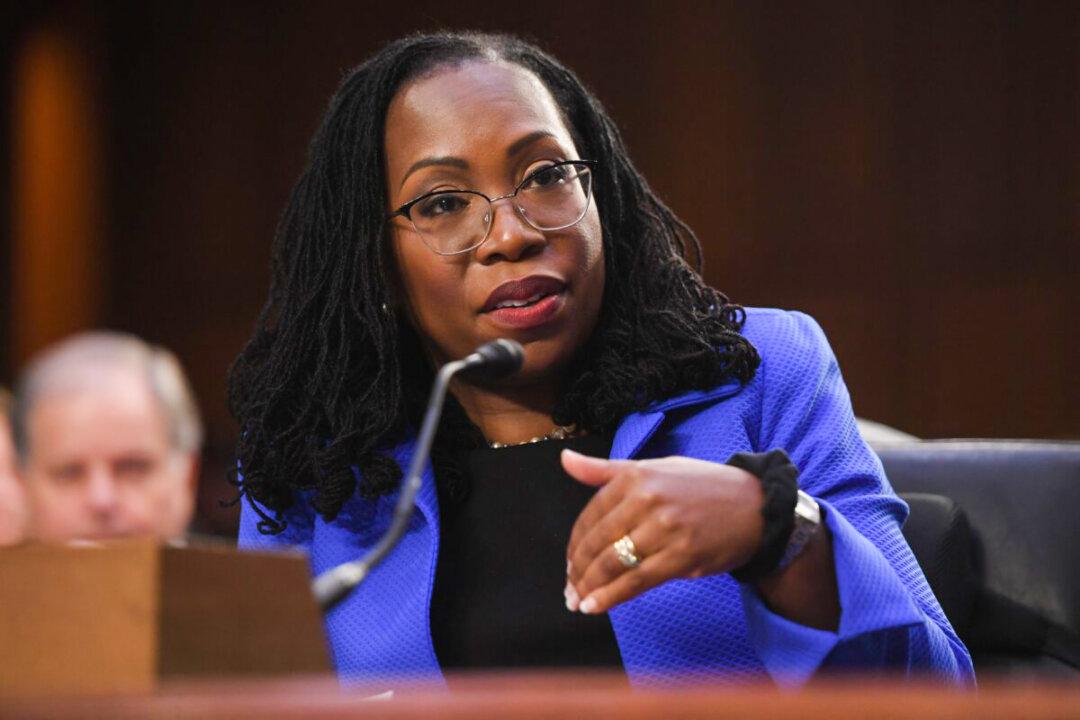Judge Ketanji Brown Jackson, whom President Joe Biden has picked to fill the Supreme Court vacancy, said Wednesday that if confirmed, she would recuse herself from a case examining Harvard University’s “race-conscious” admissions policies.
The dispute over Harvard’s admissions policy was first raised in 2014 by advocacy group Students for Fair Admissions (SFFA), on behalf of a coalition of students who claimed to have been rejected by Harvard because of their Asian ancestry. In 2020, the Court of Appeals for the First Circuit upheld a lower court decision that it is not discriminatory when Harvard considers an applicant’s race as one factor in its admissions process, prompting the SFFA to take the legal battle to the highest court.





